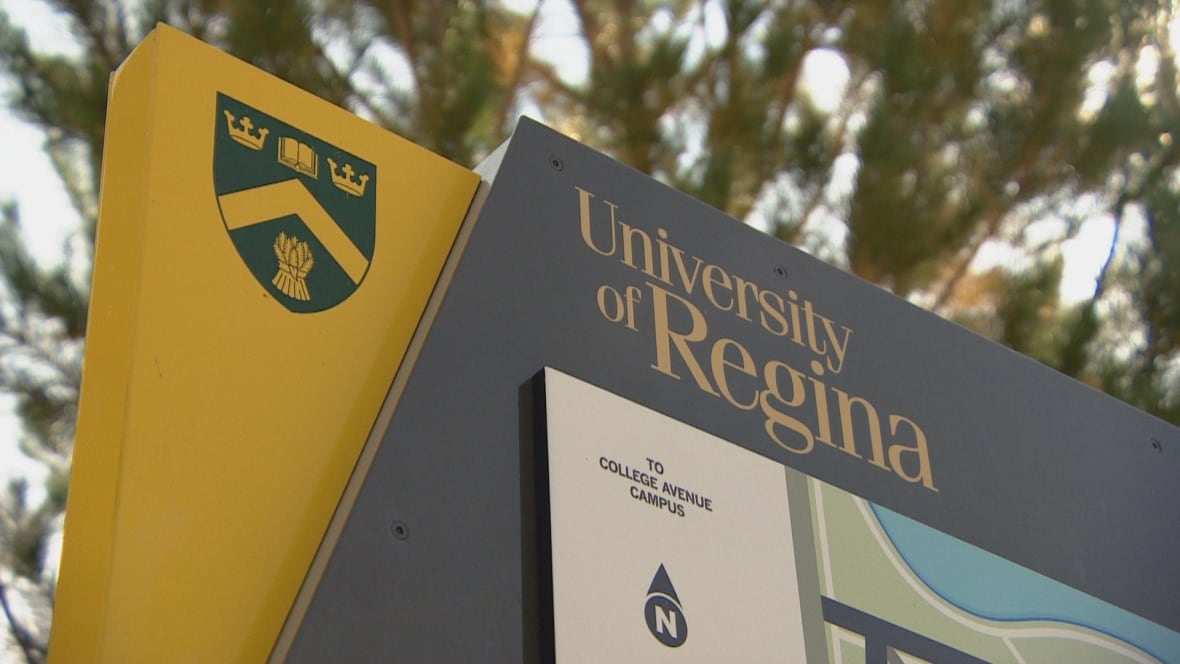Education
Saskatchewan NDP Demands Tuition Cuts Amid Rising Costs

The Saskatchewan New Democratic Party (NDP) is advocating for a reduction in post-secondary tuition fees as new data reveals that students in the province face the highest tuition costs in Canada, excluding Atlantic Canada. At a news conference on Thursday, Tajinder Grewal, the NDP’s advanced education critic, highlighted a significant increase in tuition since Scott Moe took office as premier. According to data from Statistics Canada, the average tuition fee in Saskatchewan rose from $7,257 in the 2017-18 academic year to $9,863 for the current year, marking a 36 percent increase.
Grewal criticized Moe’s government for what he describes as a failure to invest in students’ futures, stating, “Instead of investing in our kids’ futures, Scott Moe’s government is saddling them with crushing debt.” The latest tuition hikes at local universities have exacerbated concerns about affordability. The University of Saskatchewan recently increased its tuition by 3.8 percent, while the University of Regina raised fees by four percent.
First-year student Kebron Giday at the University of Regina expressed frustration over the cumulative costs of attending university. “I pay for my tuition. I pay for everything else, it’s crazy,” Giday remarked. “Everything you would think would be free and comes with tuition … it’s not.” Fellow student Sarah Willson echoed these sentiments, emphasizing the burden of living costs while trying to manage studies and part-time work. “As a student when you’re only working part-time, you can’t work a full-time job. That’s impossible,” she noted, adding that expenses like housing, groceries, and transportation quickly accumulate.
Government Funding and Impact on Students
Grewal attributed the rising tuition costs to what he described as chronic underfunding of post-secondary institutions by the Saskatchewan Party government. He pointed out that two decades ago, the province funded approximately 60 percent of universities’ operating budgets; currently, that figure is around 50 percent or lower. “Affordable tuition must be the bare minimum,” he stated. “That’s the best investment we can make.”
The tuition increases have led to adverse effects on student enrollment and course availability. With a decline in international students, universities are facing longer waitlists for classes, cuts to programs, and a reduction in research opportunities. Grewal warned that these tuition hikes are driving young people to pursue their education in other provinces, exacerbating existing shortages in critical sectors like health care and education.
In response to the rising costs, the NDP has initiated a petition advocating for lower tuition fees. Party members and volunteers are actively gathering signatures through door-to-door canvassing efforts.
The provincial government responded to the NDP’s claims, stating that universities are autonomous entities responsible for setting their own tuition and fee rates. Additionally, the government highlighted efforts to support students, including a 20 percent increase in the graduate retention program, a cap on tuition increases at four percent through a multi-year funding agreement, and over $113.4 million allocated in direct support through tax credits, grants, scholarships, and student aid programs.
As the debate continues, students like Giday and Willson remain concerned about the financial hurdles they face while pursuing their education. The impact of rising tuition and living costs on their academic journeys raises significant questions about the future accessibility of higher education in Saskatchewan.
-

 Education2 months ago
Education2 months agoBrandon University’s Failed $5 Million Project Sparks Oversight Review
-

 Lifestyle3 months ago
Lifestyle3 months agoWinnipeg Celebrates Culinary Creativity During Le Burger Week 2025
-

 Science3 months ago
Science3 months agoMicrosoft Confirms U.S. Law Overrules Canadian Data Sovereignty
-

 Health3 months ago
Health3 months agoMontreal’s Groupe Marcelle Leads Canadian Cosmetic Industry Growth
-

 Science3 months ago
Science3 months agoTech Innovator Amandipp Singh Transforms Hiring for Disabled
-

 Technology3 months ago
Technology3 months agoDragon Ball: Sparking! Zero Launching on Switch and Switch 2 This November
-

 Education3 months ago
Education3 months agoRed River College Launches New Programs to Address Industry Needs
-

 Technology3 months ago
Technology3 months agoGoogle Pixel 10 Pro Fold Specs Unveiled Ahead of Launch
-

 Technology1 month ago
Technology1 month agoDiscord Faces Serious Security Breach Affecting Millions
-

 Business2 months ago
Business2 months agoRocket Lab Reports Strong Q2 2025 Revenue Growth and Future Plans
-

 Science3 months ago
Science3 months agoChina’s Wukong Spacesuit Sets New Standard for AI in Space
-

 Education3 months ago
Education3 months agoAlberta Teachers’ Strike: Potential Impacts on Students and Families
-

 Technology3 months ago
Technology3 months agoWorld of Warcraft Players Buzz Over 19-Quest Bee Challenge
-

 Business3 months ago
Business3 months agoNew Estimates Reveal ChatGPT-5 Energy Use Could Soar
-

 Business3 months ago
Business3 months agoDawson City Residents Rally Around Buy Canadian Movement
-

 Education3 months ago
Education3 months agoNew SĆIȺNEW̱ SṮEȽIṮḴEȽ Elementary Opens in Langford for 2025/2026 Year
-

 Technology1 month ago
Technology1 month agoHuawei MatePad 12X Redefines Tablet Experience for Professionals
-

 Technology3 months ago
Technology3 months agoFuture Entertainment Launches DDoD with Gameplay Trailer Showcase
-

 Business3 months ago
Business3 months agoBNA Brewing to Open New Bowling Alley in Downtown Penticton
-

 Technology3 months ago
Technology3 months agoGlobal Launch of Ragnarok M: Classic Set for September 3, 2025
-

 Technology3 months ago
Technology3 months agoInnovative 140W GaN Travel Adapter Combines Power and Convenience
-

 Science3 months ago
Science3 months agoXi Labs Innovates with New AI Operating System Set for 2025 Launch
-

 Technology3 months ago
Technology3 months agoNew IDR01 Smart Ring Offers Advanced Sports Tracking for $169
-

 Technology3 months ago
Technology3 months agoDiscover the Relaxing Charm of Tiny Bookshop: A Cozy Gaming Escape










